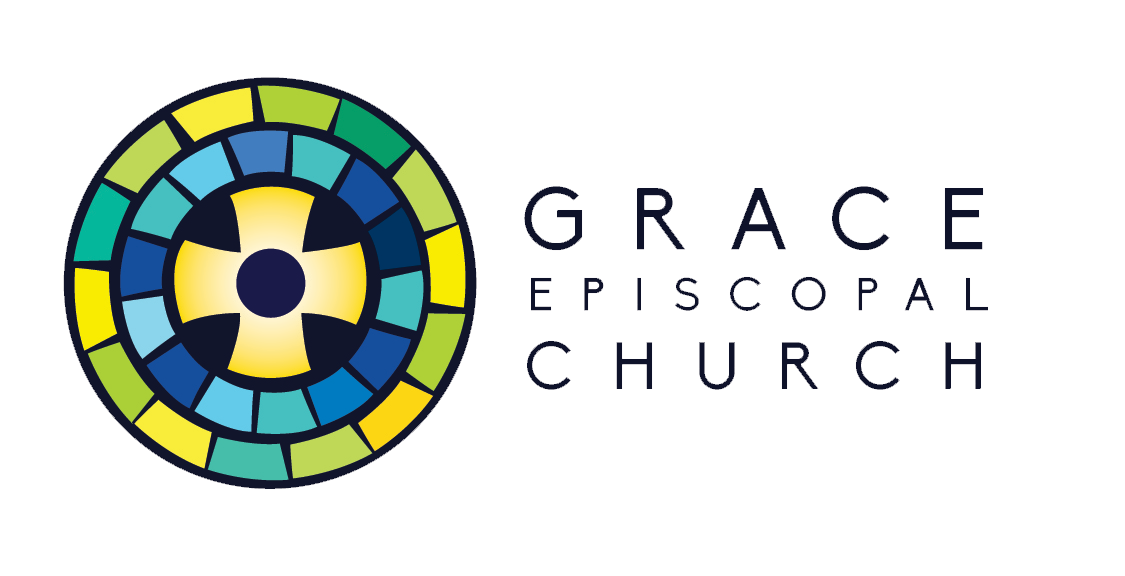Then…
…and now!
Grace Episcopal Church in Newton was founded in 1855 by families from three adjacent neighborhoods – Newton Corner, Watertown and Brighton (Boston) – who were faced with a 4.5 mile journey to Christ Episcopal Church in Waltham or an even longer trek to St. Mary’s Lower Falls, the first and the only Episcopal Church in Newton. Newton at that time was a Puritan/Congregational town of 6,768 souls. Flourishing in rented space over Mr. Brackett’s butcher shop in Newton Corner, Grace built a wooden chapel in 1858 at the corner of Washington and Hovey Streets, now the location of a new Walgreen’s Pharmacy. Wood and coal-burning engines pulled passenger trains of six cars from Boston to West Newton, speeding through Newton Corner at up to sixty miles per hour on four tracks that were then at street level. Within a dozen years, Grace’s congregation had outgrown the chapel (and had become weary of the railroad smoke and clatter). Consequently, the parish purchased our current site on newly-laid out Eldredge Street, opening our present building on St. Andrew’s Day in November, 1873, becoming the first stone church in Newton.
From its beginning, Grace Church has had strong programs in music, in the education of both adults and children, and has been involved in the community beyond its doors in questions of social action and justice. Our rector for 31 years, the Rev. Dr. George W. Shinn, helped to found Newton-Wellesley Hospital. The Rev. Thomas Lehman and the Rev. James McAlpine, our rectors during the 1960s, 70s and 80s, provided justice-oriented leadership in a rapidly changing society, including resettling and sponsoring a Cambodian family, leading the establishment of the Newton Community Development Foundation to expand affordable housing in our neighborhoods, providing food for the women of Rosie’s Place, and participating in a variety of Diocesan initiatives such as the birth of Refugee Immigration Ministry (RIM) and Common Cathedral. In 1966, Grace Church joined with Massachusetts clergy and lay leaders who marched in the South with the Rev. Dr. Martin Luther King, Jr. to found Cooperative Metropolitan Ministries, Inc. (CMM), and continues to fight with CMM for racial and economic justice today. Ongoing work of Grace parishioners includes monthly Saturday service at the Newton Food Pantry, supporting the B-SAFE summer program at St. Mary’s in Dorchester, participating in the Walk for Hunger and in the Gay Pride Parade, and hosting fundraisers for Episcopal Relief and Development and the Newton Food Pantry.
Grace Church has had three Rectors who are women, and has been inviting children to participate in the Eucharist since the 1960’s. The Grace Discussion Group has met weekly, prior to the Sunday morning worship service, for almost 60 years. These reflections, led by both parishioners and invited speakers, further lead us to be positively involved with people here and around the world in the broader context of striving for peace and justice.
A few years ago we conducted a demographic survey to better understand the faith journeys of current parishioners. About half of our active worshippers completed the worship questionnaire, indicating that members come from a wide variety of faith backgrounds, including “cradle” Episcopalians (about 45% of respondents), Roman Catholics (about 23%), Methodists (about 9%) and Lutherans (about 7%). The remaining 15% listed backgrounds that ran the gamut, including Presbyterian, Unitarian, UCC, Swedenborgian, Quaker, Jewish and an “agnostic” or two.
Donald Kennedy, Grace Church Historian (updated August, 2020)


